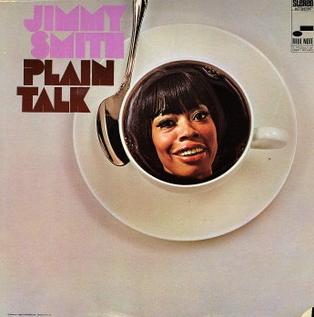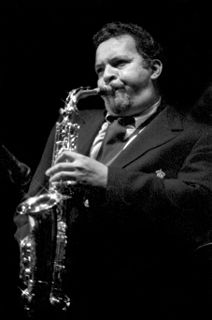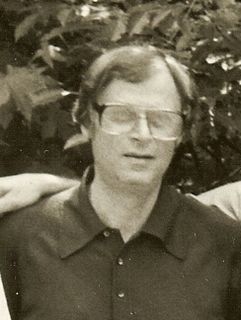
Sunny Side Up is an album by jazz saxophonist Lou Donaldson recorded for the Blue Note label and performed by Donaldson with Bill Hardman, Horace Parlan, Sam Jones, Al Harewood, with Laymon Jackson replacing Jones on four tracks.
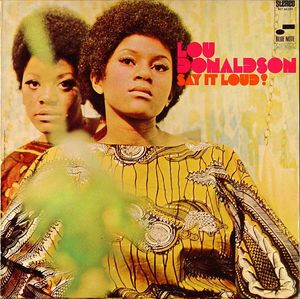
Say It Loud! is an album by jazz saxophonist Lou Donaldson recorded for the Blue Note label in 1968 and featuring Donaldson with Blue Mitchell, Charles Earland, Jimmy Ponder, and Leo Morris.
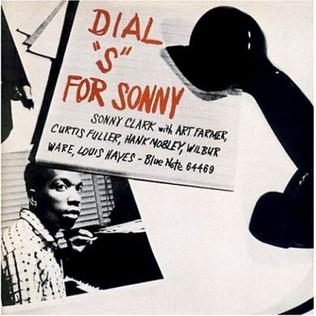
Dial "S" for Sonny is the debut studio album by jazz pianist Sonny Clark recorded for the Blue Note label and performed by Clark with Art Farmer, Curtis Fuller, Hank Mobley, Wilbur Ware, and Louis Hayes.

Easy Walker is an album by jazz saxophonist Stanley Turrentine recorded for the Blue Note label in 1966 and performed by Turrentine with McCoy Tyner, Bob Cranshaw and Mickey Roker. One additional track from an unreleased session arranged by Duke Pearson was added to the original CD release and another four bonus tracks recorded in 1969 and originally released on Ain't No Way were added to the 1997 CD reissue.

Straight Ahead is an album by jazz saxophonist Stanley Turrentine, his first recording for the Blue Note label since Another Story in 1969, featuring four performances by Turrentine with Jimmy Smith, George Benson, Ron Carter and Jimmy Madison, and two tracks with Les McCann, Jimmy Ponder, Peter Brown, and Gerrick King.
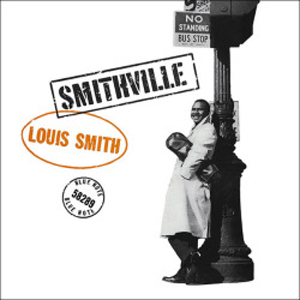
Smithville is the second album by American trumpeter Louis Smith recorded in 1958. It was Smith's final album released by Blue Note label.

The Opener is an album by American trombonist Curtis Fuller recorded in 1957 and released on the Blue Note label as BLP 1567.

A Sure Thing is an album by American trumpeter Blue Mitchell with orchestra recorded in 1962 and released on the Riverside label.

Good Move! is the third album by American organist Freddie Roach recorded in 1963 and released on the Blue Note label.

Easy Living is an album by American saxophonist Ike Quebec recorded in 1962, but not released on the Blue Note label until 1987. The album collects all the material recorded in January 1962, five tracks from which were released in 1981 as Congo Lament.

House Party is the fourteenth album by American jazz organist Jimmy Smith featuring performances recorded in 1957 and 1958 and released on the Blue Note label. The album was rereleased on CD with one bonus track.

The Sounds of Jimmy Smith is an album by American jazz organist Jimmy Smith featuring performances recorded in 1957 and released on the Blue Note label. The CD reissue added three tunes recorded at the same session as bonus tracks.

Prayer Meetin' is an album by American jazz organist Jimmy Smith featuring performances recorded in 1963 and released on the Blue Note label. The album was rereleased on CD with two bonus tracks from the same session.

Bucket! is an album by American jazz organist Jimmy Smith featuring performances recorded in 1963 but not released on the Blue Note label until 1966. The CD reissue added two tracks recorded at the same session as bonus tracks.
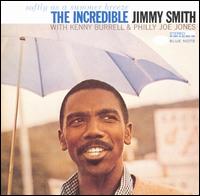
Softly as a Summer Breeze is an album by American jazz organist Jimmy Smith featuring performances recorded in 1958 but not released on the Blue Note label until 1965. The album was rereleased on CD with four bonus tracks recorded at a later session.
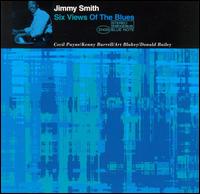
Six Views of the Blues is an album by American jazz organist Jimmy Smith featuring performances recorded in 1958 but not released on the Blue Note label until 1999. Originally the single "The Swingin' Shepherd Blues" was released in 1958 as Blue Note 45-1711.
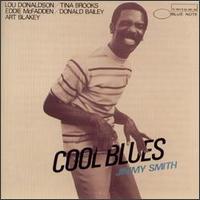
Cool Blues is a live album by American jazz organist Jimmy Smith featuring performances recorded at Small's Paradise in New York City in 1958 but not released on the Blue Note label until 1980. The album was rereleased on CD with three bonus tracks recorded at the same performance.
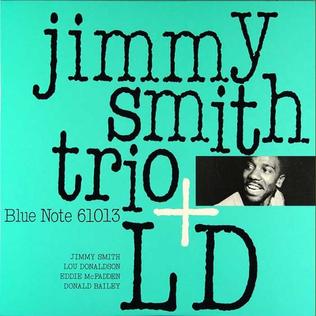
Jimmy Smith Trio + LD is an album by jazz organist Jimmy Smith and saxophonist Lou Donaldson recorded for the Blue Note label in 1957 and released only in Japan.

Live at the Lighthouse is a live album by jazz group The Three Sounds featuring performances recorded in 1967 at the Lighthouse Club in California and released on the Blue Note label.



